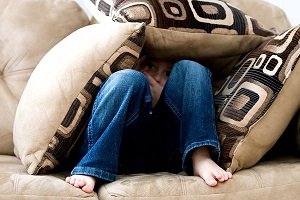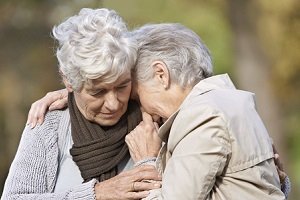Childhood PTSD - Effects of Trauma
TweetTraumatic events in life causes people to suffer throughout the out. These sufferings are far more worse if there is a traumatic event in a child's life. According to a research by National Academy of Sciences, the children who are abused develop post traumatic stress disorder (PTSD) which is very different from otherwise PTSD caused by other forms of traumatic events in life. They have radical biological difference in the behaviour patterns and outcome.
PTSD Symptoms in Children Age Six and Younger
Posttraumatic stress disorder, in children is positively diagnosed if the person experiences symptoms even after one month of the event occurance. These symptoms includes one - memories and flashback, two - some kind of behavioural enactment.
Childhood trauma increases the risk of future trauma
Children, specially in their early adolescent years and primary years, are more likely to be effected by traumatic events for a long long time. These kids see the world as a dangerous place and always live in a sense of frightening surroundings. The basic sense of fear and helplessness in children as they grow, carries forward in adulthood as well and this can be another setup of further trauma.
Childhood trauma can come from any of the below mentioned areas and it can severely disrupt the sense of safety and security in children. These events can be one of the following:
- Separation from one or both of the parents
- Domestic voilence
- Illness - causing movements, normal activities, etc
- Any medical procedures
- Sexual abuse
- Physical voilence or verbal spats
- Neglect by parents or peer groups
- Bullying at school or play areas
What events cause PTSD in children?
Some of the events which can cause trauma and PTSD in children and teenagers include the following types of events
- Live through a voilent event causing severe injuries to someone else of themselves.
- Sexual or physical abuse
- Disasters such as floods, school shootings, car crashes, etc.
- War, a friend's suicide, or witnessing violence at the place of residence, etc.
Management fo PTSD in children
The first and foremost thing which is needed is to provide the child a safe and sound surroundings and then comes any urgent medical attention. After that, depending on the condition and diagnosis of PTSD, following treatment or cure options are used.
Psychological therapy for PTSD in Child
- Giving child a sense of mastery overy trauma and make him feel safe again.
- Removing the social stigma in Children and Parent equally about the trauma.
- The emotional and behavioral side of the problems needs full attention by behaviour experts.
Trauma focused CBT (TF-CBT)
This is the most effective therapy in children with trauma and includes the following - available treatments such as following routine relaxation techniques such as yoga, deep meditation, relaxation, hypnosis, etc.
Other Medicinal Alternates
If the CBT fails to give any relief from symptoms, there are additional options present such as pharmacologic treatment which can involve some of the following drugs:
- SSRIs - Medications anxiety and depression,
- Avoidance behavior and intrusive recollections
- Beta blockers
- Alpha-adrenergic agonists
- Mood stabilizers
- Atypical antipsychotics
What to ask yourself after meeting with Trauma therapist
- Did you and your child felt comfortable about discussing your problems with the therapist?
- Did the therapist understood all the behaviour and symptoms as you are experiencing.
- Did you felt dismissed or dejected by some comment from the therapist?
- Did you get benefitted from the visit to therapist?


Sometimes crying or laughing
are the only options left,
and laughing feels better right now.

Current Issue
 Self Help Leaflets Take the help of our self help leaflets or booklets. |
 The DG Magazine All about living with depression |


















